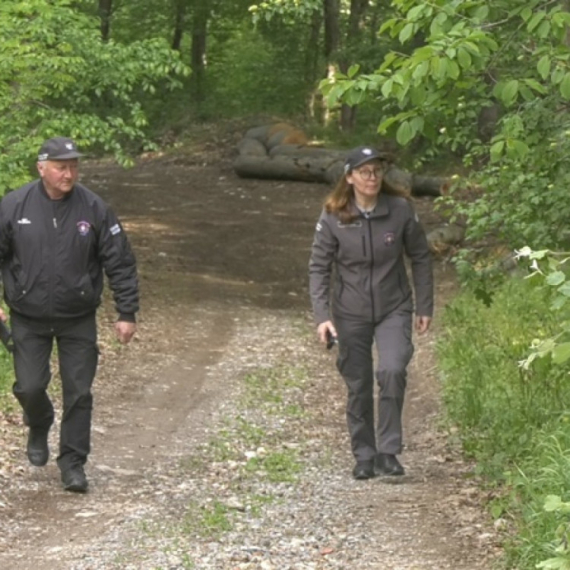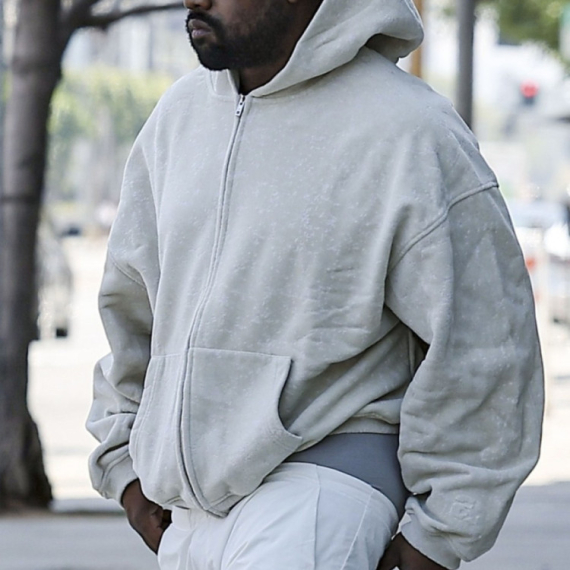Disappointed voters "increasingly don't care about EU"
Several Belgrade newspapers today analyze the results of <a href="http://www.b92.net/eng/news/politics-article.php?yyyy=2011&mm=04&dd=06&nav_id=73645" class="text-link" target= "_blank">new public opinion polls</a>, which give opposition parties a high degree of support among Serbian voters.
Thursday, 07.04.2011.
11:59

Several Belgrade newspapers today analyze the results of new public opinion polls, which give opposition parties a high degree of support among Serbian voters. If elections were held today, the Serb Progressive Party (SNS) and the Democratic Party of Serbia (DSS) could win together, according to this. Disappointed voters "increasingly don't care about EU" Danas and Blic newspapers quote analysts who said the opposition was profiting from a bad economy, and noted there had been a drop in support for EU integrations. For the first time the surveys have shown that only 42.4 percent of respondents supported Serbia's integration into the EU, while as many as 27.7 had no opinion on this subject. Analysts say that the results indicate there is "huge and growing" dissatisfaction in the country, "which could turn into unprecedented abstinence from voting precisely by those who previously supported reforms, and who are no longer ready to make the necessary sacrifices because of the reforms are not being conducted". Miljenko Dereta, president of the Civil Initiatives, says the ruling Democrats (DS) are experiencing an "unequivocal" loss of support. "The threat of, 'those others are worse than us' no longer works, because the answer is, 'you're no better'. And if that is the case, then we don't care who's in power. What surprises me is the incredibly passive manner in which the Democrats are watching their declining trend of support," said Dereta- He believes SNS leader Tomislav Nikolic is now renewing contacts with DSS leader Vojislav Kostunica "in the hope that they will be able to form government after elections and thus avoid a grand coalition - something that the results (of the polls) indicate would happen." Dereta also warned that the public believes a continuity of EU integration processes is guaranteed, "and for that reason, paradoxically, many DS voters won't turn out to vote". Institute of Political Studies researcher Miodrag Radojevic sees the declining support for the EU as the key and basic indicator in the opinion surveys, rather than the ruling coalition's slide. "In a way, the idea of European integrations has been made invalid, because 20 percent fewer Serbians support it today compared to two years ago," he noted. Radojevic also described the Progressives as the Democrats' "alter ego", with a similar political and strategic program, "but with an important distinction of claiming that they would do all that much more efficiently". "As we can see, this formula has proved to be efficient and secured a huge surge in ratings for the party. The Progressives' success is that much greater since they do not control the media, and are instead using field campaigning very skillfully," said this analyst. Radojevic also believes that the rise in popularity of the Liberal-Democrats (LDP) comes from those who previously voted for DS. "LDP has achieved its tactical goal, they are rated as the third party, but in a political atmosphere that is extremely unfavorable for them. They took over several percent of disappointed DS supporters, instead of recruiting from undecided voters. Lately, as a party of the so-called third way, they've acted constructively in parliament and suggested very good proposals in order to end the crisis, which have not always resonated with the ruling coalition," Radojevic concluded.
Disappointed voters "increasingly don't care about EU"
Danas and Blic newspapers quote analysts who said the opposition was profiting from a bad economy, and noted there had been a drop in support for EU integrations.For the first time the surveys have shown that only 42.4 percent of respondents supported Serbia's integration into the EU, while as many as 27.7 had no opinion on this subject.
Analysts say that the results indicate there is "huge and growing" dissatisfaction in the country, "which could turn into unprecedented abstinence from voting precisely by those who previously supported reforms, and who are no longer ready to make the necessary sacrifices because of the reforms are not being conducted".
Miljenko Dereta, president of the Civil Initiatives, says the ruling Democrats (DS) are experiencing an "unequivocal" loss of support.
"The threat of, 'those others are worse than us' no longer works, because the answer is, 'you're no better'. And if that is the case, then we don't care who's in power. What surprises me is the incredibly passive manner in which the Democrats are watching their declining trend of support," said Dereta-
He believes SNS leader Tomislav Nikolić is now renewing contacts with DSS leader Vojislav Koštunica "in the hope that they will be able to form government after elections and thus avoid a grand coalition - something that the results (of the polls) indicate would happen."
Dereta also warned that the public believes a continuity of EU integration processes is guaranteed, "and for that reason, paradoxically, many DS voters won't turn out to vote".
Institute of Political Studies researcher Miodrag Radojević sees the declining support for the EU as the key and basic indicator in the opinion surveys, rather than the ruling coalition's slide.
"In a way, the idea of European integrations has been made invalid, because 20 percent fewer Serbians support it today compared to two years ago," he noted.
Radojević also described the Progressives as the Democrats' "alter ego", with a similar political and strategic program, "but with an important distinction of claiming that they would do all that much more efficiently".
"As we can see, this formula has proved to be efficient and secured a huge surge in ratings for the party. The Progressives' success is that much greater since they do not control the media, and are instead using field campaigning very skillfully," said this analyst.
Radojević also believes that the rise in popularity of the Liberal-Democrats (LDP) comes from those who previously voted for DS.
"LDP has achieved its tactical goal, they are rated as the third party, but in a political atmosphere that is extremely unfavorable for them. They took over several percent of disappointed DS supporters, instead of recruiting from undecided voters. Lately, as a party of the so-called third way, they've acted constructively in parliament and suggested very good proposals in order to end the crisis, which have not always resonated with the ruling coalition," Radojević concluded.

























































Komentari 8
Pogledaj komentare